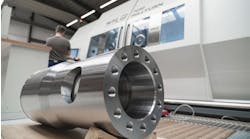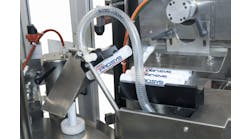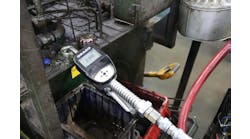Compressed air systems don't seem like there is anything fancy about them. But there's actually been a lot of changes over the years that have made a lot of differences in operations. In this episode of Great Question: A Manufacturing Podcast, Tom Wilk, chief editor of Plant Services, talks with Ron Marshall of Compressed Air Challenge as he reviews some of the key changes in the compressed air world over the past 10 years that have dramatically improved things for compressed air users.
Below is an excerpt from the podcast:
PS: Ron Marshall is an independent consultant, the marketing coordinator of Compressed Air Challenge, and he recently wrote a new cover story for our July/August print issue. He tackles a look backward in the industry, looking back 10 years to identify what were some of the most important changes that we've seen over the last decade, and pointing toward what might be coming in the future. Ron, welcome back to the podcast.
RM: Thanks for having me on again.
PS: Now we don't have to walk through each of the changes that you outlined in your article. People can go ahead and click to the article if they'd like, but I appreciate you being on to talk about some of the key developments that you did mention in the article.
RM: Sure, sure. Yeah, that would be a good idea.
PS: The first one you mentioned right away are CAGI Data Sheets and what I like about that one is that, at this point, I think people in our industry know that these are pretty familiar objects. They've been around for a while, but I was with you 100% that these have made a massive change in the past 10 years. For people who aren't in the compressed air industry or who might not know about them, can you explain what these are and how they work?
RM: Basically they are sheets describing the important characteristics of air compressors. The testing is done by third party verification testers. Back in the old days, there used to be some really round numbers detailing what the rated capacity, the brake horsepower, all those things were for various different makes and models of air compressors. I would say sometimes some manufacturers didn't pay close attention to accuracy in this.
When it comes to comparing compressors, it's pretty important to be able to choose the correct one, one that may be the most efficient, if you're concerned about efficiency. So the third party verification and the CAGI sheets can be used to compare the compressors, one manufacturer versus another, or even within the manufacturers, one make of a compressor versus another. Sometimes compressor manufacturers have basic premium and super efficiency type of compressors, so you can see the flow of the compressors, the test pressure, the kilowatts, and a specific power number that's telling you how much air you get from certain kilowatts. That tells you basically how efficient the compressor is.
Now through the years, CAGI started with one sheet for fixed speed compressors. But variable speed drive compressors were developed, so now there's a sheet for variable speed drive compressors where you can see the efficiency across the full range of operation. Then there's specialized CAGI sheets for variable displacement compressors as well. Refrigerated dryers are another component, and there's CAGI sheets for those as well, so you can see the difference between the non-cycling and cycling dryers, and make a wise decision or an informed decision on the equipment you're buying, and the comparison between equipment.
About the Podcast
Great Question: A Manufacturing Podcast offers news and information for the people who make, store and move things and those who manage and maintain the facilities where that work gets done. Manufacturers from chemical producers to automakers to machine shops can listen for critical insights into the technologies, economic conditions and best practices that can influence how to best run facilities to reach operational excellence.














